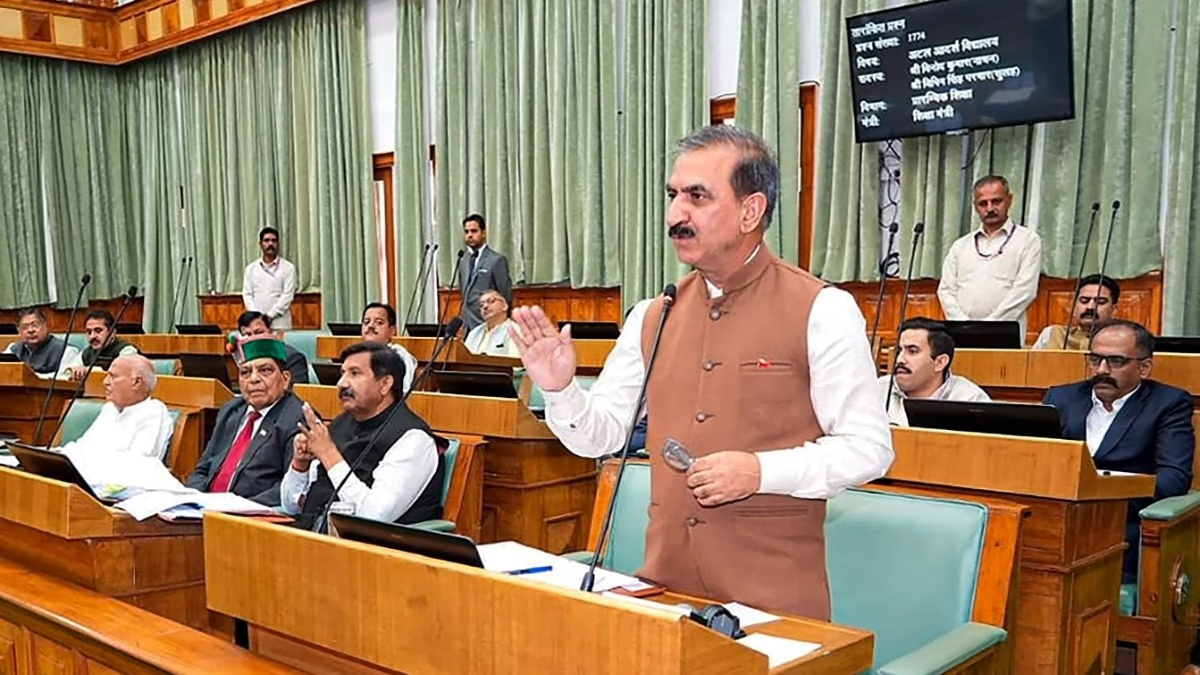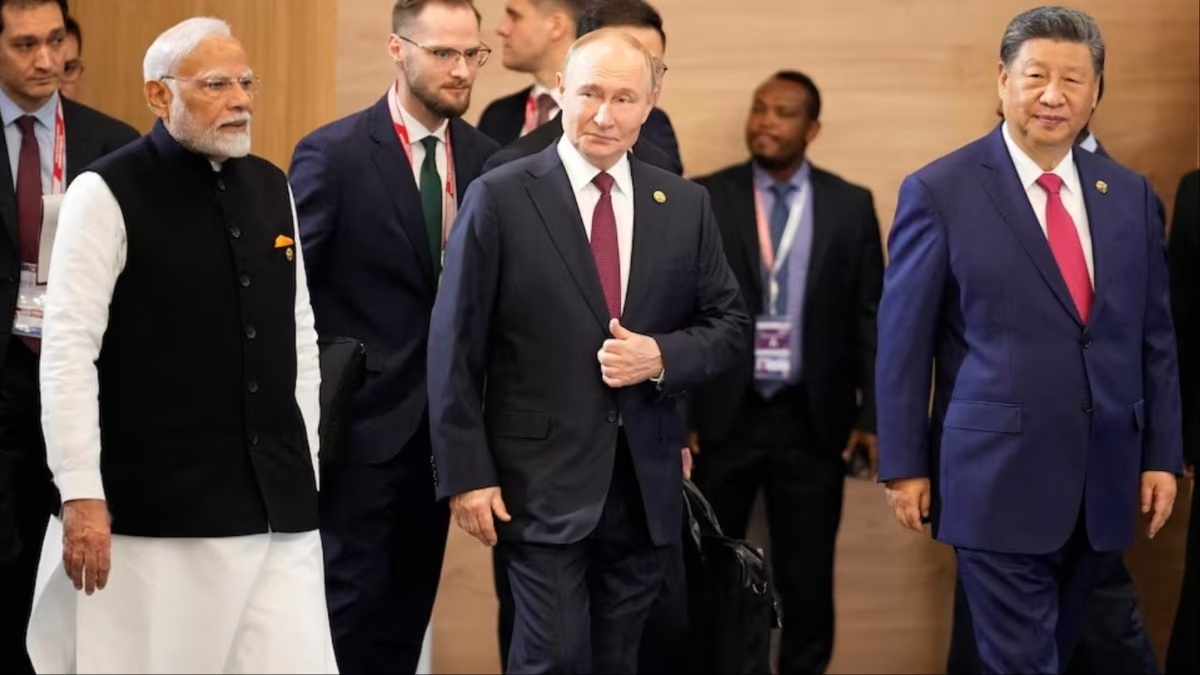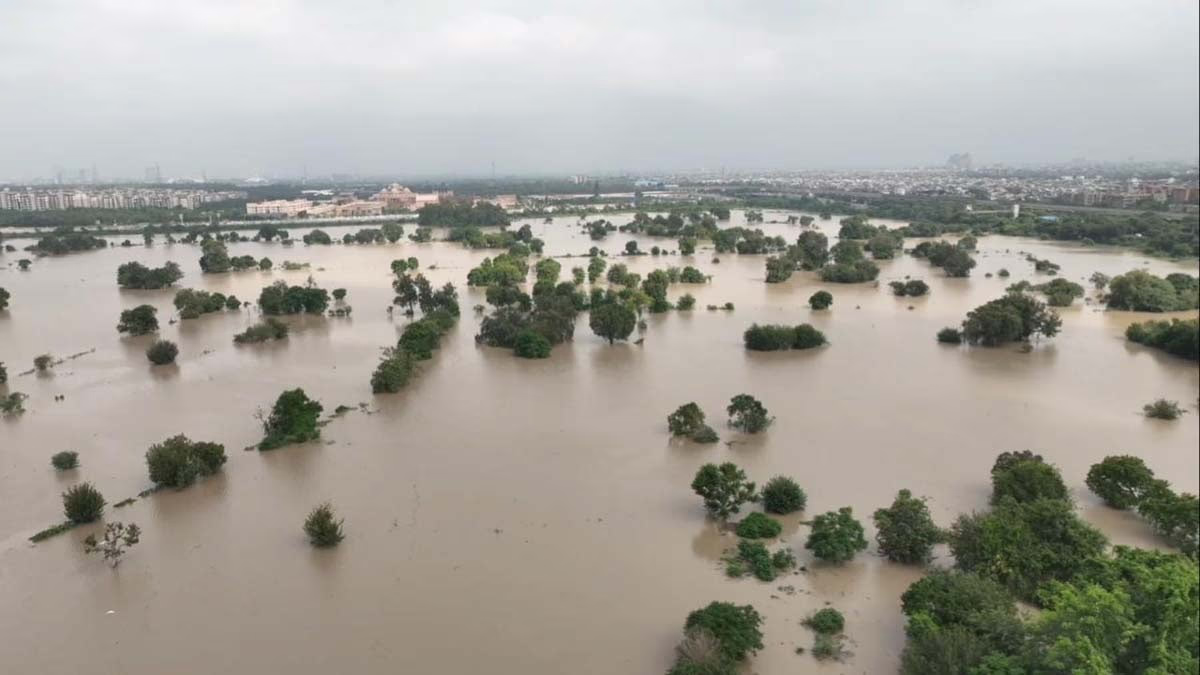Dushyant Kumar's verse aptly describes the situation...Where each home was promised a lampNow, even the city's been deprived of light.
This poetry is turning into reality. Given Himachal Pradesh's dire financial state, the government has decided on a major step. Chief Minister Sukhvinder Singh Sukhu announced on Thursday that the Chief Minister, ministers, Chief Parliamentary Secretaries, and board corporations' chairpersons will forgo their salaries and allowances for two months. The Chief Minister has also requested all MLAs to leave their salaries and allowances for two months. CM Sukhu stated that due to the precarious economic condition, he and his ministers are relinquishing their salaries and allowances for two months. He asked the MLAs to consider managing without the salary for two months and to reassess the situation later.
Could this be the financial crisis' trailer similar to the natural disasters that have struck Shimla to Manali? Just as uncontrolled development was pursued, now unchecked promises to attain power have created an economic crisis. As a result, Himachal Pradesh currently has a debt of around 870 billion INR, the highest among the 9 mountainous states in the country. By March 31, 2025, the state’s loan burden is projected to reach 949.92 billion INR.
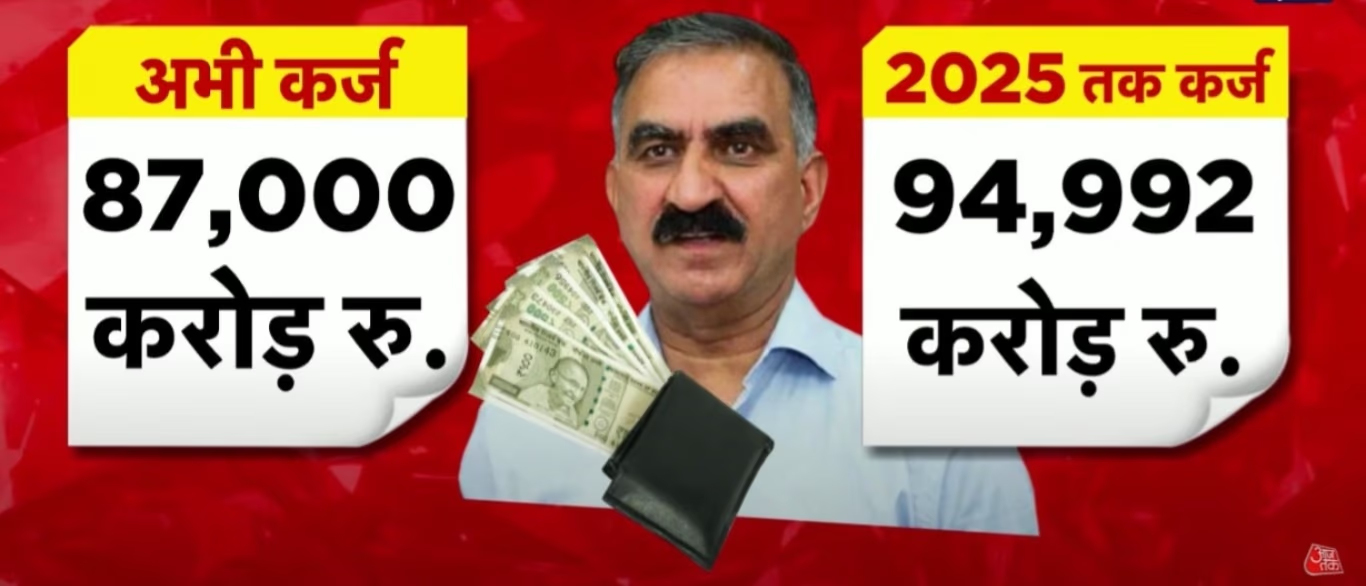
Source: aajtak
Why Has Debt Increased So Much?
What led to the situation where the Chief Minister and ministers have to give up their salaries and allowances? Himachal Pradesh's yearly budget is 584.44 billion INR. Out of this, 420.79 billion INR is spent on salaries, pensions, and repaying old debt. The expense on the Old Pension Scheme alone is considered to be 200 billion INR annually. The situation is such that the government couldn't provide 10 billion INR to 28,000 employees for pensions, gratuities, and other expenses.
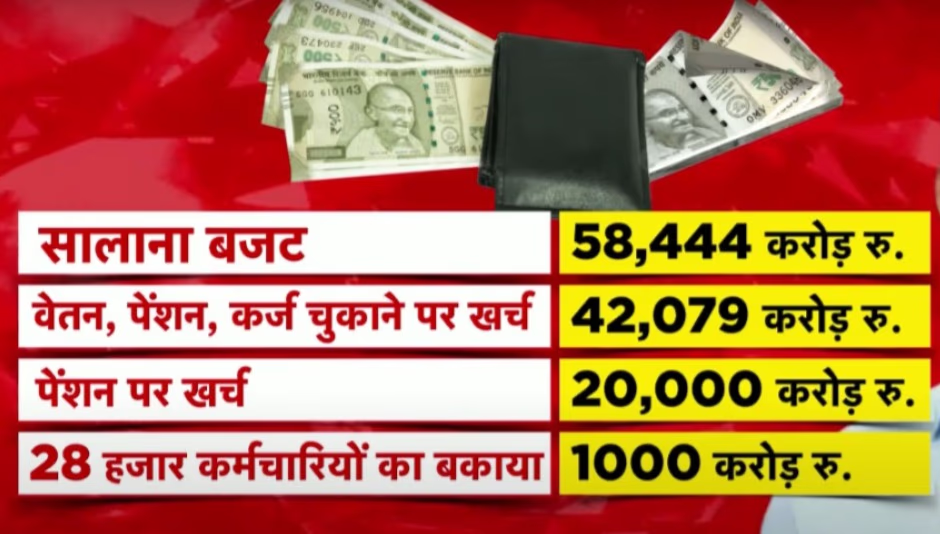
Source: aajtak
It’s not that the salary and allowance have been forgone forever. The Chief Minister has indicated they will take it once the situation improves. But is this a glimpse of a serious economic crisis on the horizon? Presently, the Chief Minister and his ministers are showcasing their sacrifice by foregoing their salary and allowances for two months.
If we break down Sukhu government's budget into 100 INR: 25 INR is spent on salaries, 17 INR on pensions, 11 INR on interest payments, 9 INR on debt repayment, and 10 INR on subsidies. The remaining 28 INR must cover development work and fulfill freebie promises. This is where the budget goes off track.
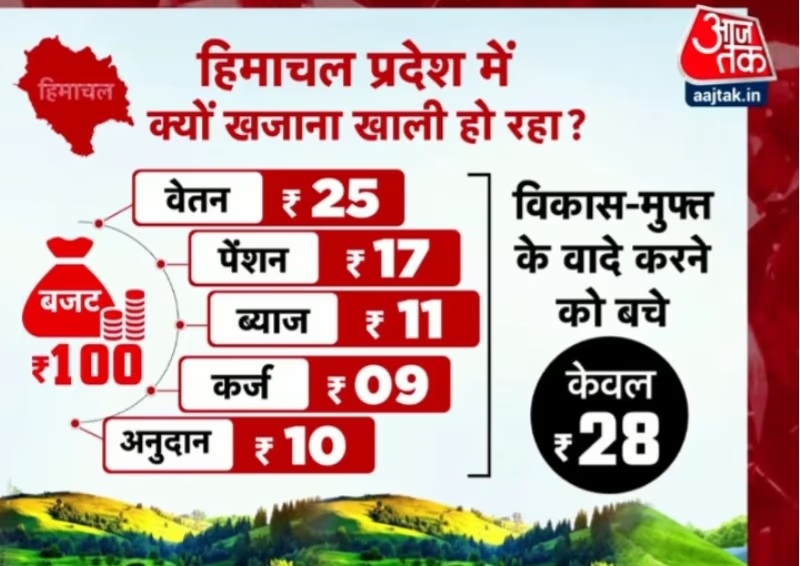
Source: aajtak
Where Are the Government’s Funds Going?
With Himachal Pradesh's debt reaching a per capita amount of 117,000 INR, second highest in the country after Arunachal Pradesh, the expenses on promises of freebies amount to 8 billion INR annually for financial aids such as 1,500 INR per month to women. Implementing the Old Pension Scheme adds an extra burden of 10 billion INR annually. The government spends 180 billion INR on free electricity subsidies. So, expenses on just three promises tally to 198 billion INR annually. Imagine the strain on the budget when salaries and pensions alone drain resources. This is why the Congress government in Himachal Pradesh hasn’t fulfilled its promise of 300 units of free electricity even after 18 months. Existing free electricity of 125 units has also been reduced.
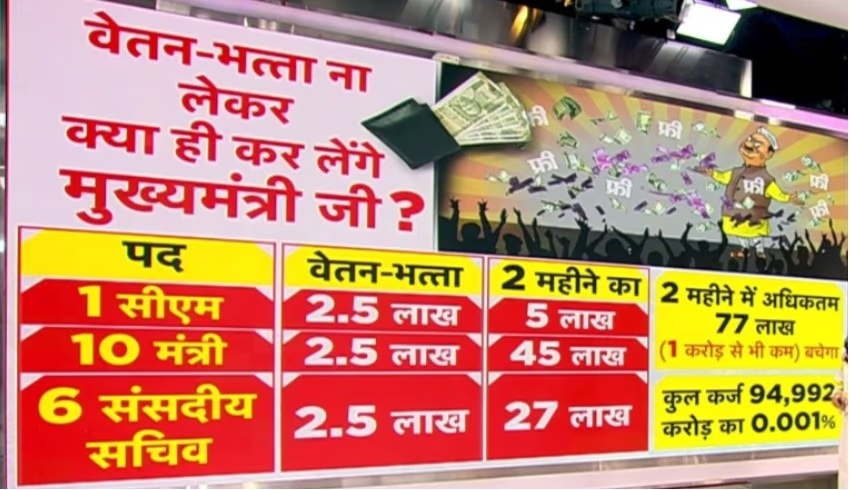
Source: aajtak
Blow from the Central Government to Sukhu's Government
The central government has reduced the borrowing limit for Sukhu's government, lowering it by 55 billion INR. While the state's GDP borrowing limit was set at 5%, it has been cut down to 3.5%. Earlier, the state could borrow up to 145 billion INR, but now it is restricted to 90 billion INR.
Debt Inherited from the BJP Government: Sukhvinder Singh Sukhu
Chief Minister Sukhvinder Singh Sukhu stated, 'We inherited this debt from the previous BJP government, which pushed the state into a financial emergency. We've improved our revenue receipts. The previous government collected 6.65 billion INR in excise revenue over five years, whereas we collected 4.85 billion INR in just the first year. We are working on this and are committed to improving the state's financial health.'
- The state has over 189,466 pensioners, expected to rise to 238,827 by 2030-31.
- The central government reduced the borrowing limit from 5% to 3.5%, meaning the state can only borrow up to 3.5% of its GDP.
